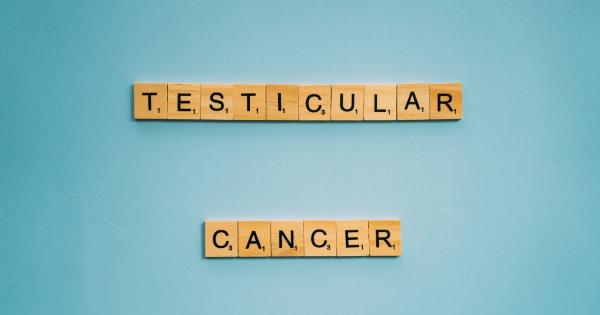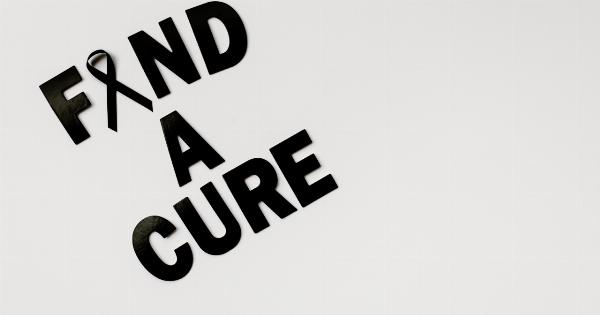Cancer is a devastating disease that affects millions of people worldwide. It can develop in any part of the body and is often diagnosed at advanced stages when treatment options are limited.
While some cancers have obvious symptoms, many others remain hidden until they reach a more advanced stage. Therefore, it is crucial to be aware of the less common signs of cancer that are often overlooked. By recognizing these hidden signs, early detection and intervention become possible, greatly improving the chances of successful treatment.
1. Unexplained Weight Loss
If you notice significant weight loss without any dietary or lifestyle changes, it might be a cause for concern. Unexplained weight loss can sometimes indicate an underlying cancer, such as pancreatic, lung, or stomach cancer.
2. Fatigue and Weakness
Feeling constantly tired and experiencing unexplained weakness can be an early sign of various cancers, including leukemia, colon, or stomach cancer. Persistent fatigue that doesn’t improve with rest should not be ignored.
3. Persistent Pain
While pain is a common symptom, persistent or chronic pain that does not resolve can be an indication of cancer. Pain may be localized or spread to other areas and is often associated with cancers such as bone, ovarian, or testicular cancer.
4. Changes in the Skin
Unusual changes in the skin, such as darkening, yellowing, redness, excessive hair growth, or changes in the appearance of moles, can be signs of various skin cancers. Regular skin checks and monitoring for changes are essential.
5. Persistent Cough or Hoarseness
A persistent cough or hoarseness that lasts for more than a few weeks could indicate lung, throat, or thyroid cancer. If accompanied by blood in cough or constant throat irritation, it should be evaluated by a healthcare professional.
6. Changes in Bowel or Bladder Habits
Changes in bowel movements, bladder habits, or the presence of blood in urine or stool should not be ignored. These changes can be indicators of various cancers, including colorectal, bladder, or kidney cancer.
7. Difficulty Swallowing
Difficulty swallowing, also known as dysphagia, can occur when cancers affect the esophagus, throat, or stomach. Persistent difficulty in swallowing food or liquids should be evaluated by a physician.
8. Unexplained Bleeding
Unexplained bleeding, such as bleeding between periods, blood in urine or stool, or bleeding from the gums, can be an alarming sign. It may indicate various cancers, including gynecological, colorectal, or blood-related cancers.
9. Changes in Breast Appearance
While many people are aware of the importance of breast self-exams, changes in breast appearance other than lumps should also be noted. These changes can include nipple inversion, skin dimpling, redness, or unusual discharge.
10. Frequent Infections
If you find yourself getting infections more frequently than usual, it might be a sign of an underlying immune system dysfunction. Certain cancers, such as leukemia, can suppress the immune system, leading to increased susceptibility to infections.
11. Chronic Indigestion or Heartburn
While indigestion and heartburn are common, persistent symptoms should not be ignored. Chronic indigestion or heartburn, especially accompanied by difficulty swallowing, can be an early sign of esophageal or stomach cancer.
12. Changes in Lymph Nodes
Swollen or enlarged lymph nodes that persist for several weeks can be indicative of underlying conditions, including lymphoma or other types of cancer. Always consult a healthcare professional if you notice such changes.
13. Changes in the Mouth
Ulcers or sores in the mouth that do not heal within a reasonable timeframe can be potential signs of oral cancer. Regular dental examinations can help in the early detection of such conditions.
14. Abdominal Bloating
Excessive or persistent bloating, particularly when accompanied by other digestive symptoms such as gas, cramps, or changes in bowel habits, can be a sign of ovarian or gastrointestinal cancers.
15. Persistent Headaches
While headaches are common and usually not a cause for concern, persistent or severe headaches can sometimes be associated with brain tumors. Seek medical attention if the headaches worsen over time or are accompanied by other symptoms.
16. Changes in Urination
Changes in urination patterns, such as frequent urination, urgency, blood in urine, or difficulty in urinating, can be potential signs of bladder or prostate cancer. These changes should be evaluated by a healthcare professional.
17. Swelling or Lumps
Unexplained swelling or development of lumps in any part of the body, especially in the breast, testicles, lymph nodes, or soft tissues, should be carefully examined to rule out potential cancers.
18. Changes in Nail Appearance
Changes in the appearance of nails, such as unusual discoloration, clubbing, or pitting, should be noted. These changes can sometimes indicate underlying health issues, including certain types of skin cancers.
19. Persistent Back Pain
While back pain is common among many individuals, persistent back pain that doesn’t improve with rest or treatments might be associated with certain types of cancer, such as pancreatic or lung cancer.
20. Sudden Changes in Voice
If you experience sudden changes in your voice, such as hoarseness or difficulty speaking, it could be an early sign of laryngeal or throat cancer. Consult an ENT specialist if you notice such changes.
While the presence of any of these signs does not guarantee the presence of cancer, they should be taken seriously and evaluated by a healthcare professional. Early detection is crucial for successful treatment and improved outcomes in cancer patients.
Stay vigilant, practice self-awareness, and seek medical advice if you notice any concerning changes in your body.
























